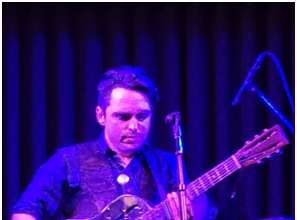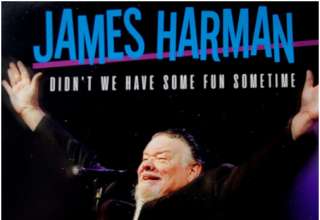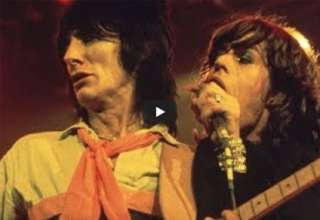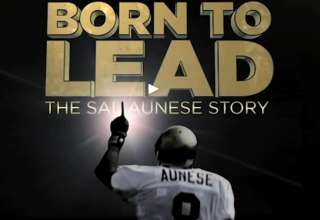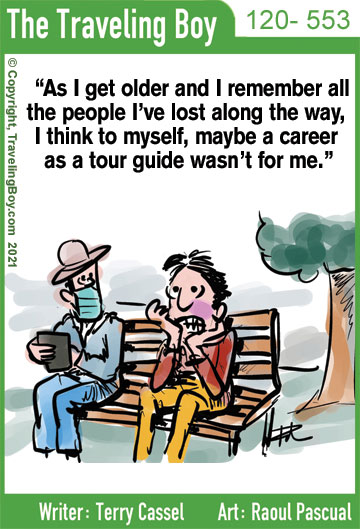Detroit’s reigning Queen of the Blues; Thornetta Davis recently graced Southern California with a royal visit courtesy of the San Diego Gourmet Blues Series. Ms. Davis’ performance made it perfectly clear why she was honored with the Female Soul Blues Artist of the year at the 2023 Blues Music Awards in Memphis last May. Thornetta and her Motor City entourage follow a musical path that is uniquely their own and the songbook they work from contain the crown jewels of soul, blues, rock and funk. For more than two hours she reminded So Cal’s blues faithful what the true meaning of Detroit’s thriving music scene is all about. “Detroit, man! Give it up for Detroit musicians! Don’t sleep on us!”
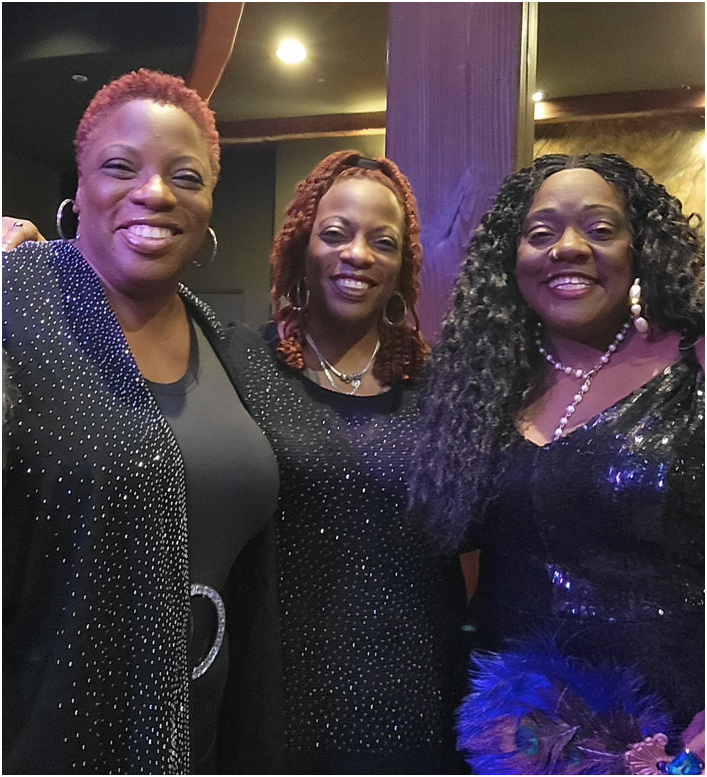
Let’s start with the early years…did you sing around the house when you were young? “I would sing around the house a lot. People assume that I grew up singing in church, but my family didn’t go to church very much. My mom had her own beliefs and the church wasn’t the way for her, but we were raised to believe in God. And my grandmamma and great-grandmamma and grandfather all lived in the same house. My three sisters and me, my mom and my dad lived there for a minute before they got divorced, so we had a little dysfunction there growing up as a child.”
Always Detroit? “Born and raised in the city of Detroit and I listened to a lot of music coming up because that was my peace. Whenever I felt like I needed some peace of mind I would go and put on the record player. The record player gave me my peace; I’d go to the record player and put on my favorite, the Supremes or the Temptations because at that time Motown was happenin’ and that’s what I was listening to and that’s what my mom and dad were listening to at the time. Or anything from Nancy Wilson or Etta James, but as a child my main influence coming up as a singer, Phyllis Hyman was the one I listened to. Everybody assumes it would have been blues but it was Phyllis Hyman that motivated me to sing.”
Did jazz play any part as far as influences? “I would say a little bit but I always thought at the time that blues and jazz were my mom and dad’s music, so I always wanted to listen to the Top 40. Coming up in Detroit in the late 70s and 80s we were listening to the Dramatics, a great Detroit band and a lot of other Detroit acts that made it national (the Spinners, DeBarge) and I listened to a lot of that, too.”
Let’s talk a little about you recording career. “I think at the age of 22…and I had been in a group with my girls called, ‘Chanteuse’ and we were just trying to be heard. It’s hard to get people to listen and it’s hard to get gigs. We never had regular gigs; we’d make our own gigs and go home with $50 to split up. I ended up going to a jam session with an established band there and somebody told them I could sing. They got me up on stage, and at the time they were doing old blues and soul music that I had been listening to with my mom and dad and that I knew. They said, ‘we don’t do Top 40, we do soul and blues. Do you do that?’ I go, Okay…yeah!” (laughing) “I did one blues song with them and I became a blues singer after that, because they asked me to join the band. They were called the Chisel Brothers. I was with them for awhile and started getting a name in the city of Detroit as a blues singer. Then everybody wanted to have the powerful blues singer voice that they’d been hearing about.”
When did you get involved with the band, Big Chief? “Big Chief was an alternative rock band that came out in the nineties, ’95 or ’96 time period. They were signed to Sub Pop Records, the label based in Seattle. They came to me and said, ‘we want your voice.’ And you know at that time there was always a soulful voice wailing over the rock songs. You know, Boy George had ‘Church of the Poison Mind’ with that soulful voice. When someone wanted a soulful voice wailing on their records in the 90s, I was the one to get the call in Detroit. So when Big Chief called me, the label liked me so much, they said, ‘we want to do a record with you.’ I had been with the Chisel Brothers for about ten years by then, so I had to make a big decision. It was like stepping out on faith because I had been loyal to these guys for so long, but I wanted to do something…different. I wanted to step out. So I decided to do this record with Big Chief. I still wasn’t used to doing my own thing because I was a person that just showed up and did what they told me to do. I sang…I wasn’t in charge of my checks; I wasn’t in charge of anything. I would just show up and sing. Basically, when I stepped out on faith and decided to do that thing with Sub Pop, I got my own career.”
How did that impact your direction? “When I did the Sub Pop gig, it did not make me a lot of money because they didn’t know what to do with me. I’m a blues singer who sings rock!” (laughing) “It was a grunge label! They didn’t know what to do with me. And I had just started writing, so when they signed me and I told them I wasn’t a writer. About three months in they said, ‘Look, we’re about to drop you if you don’t start writing. At the time I was in a tumultuous relationship that I just couldn’t seem to get out of, so I started writing songs about it. It motivated me to write, so then I became a songwriter. The album is called ‘Sunday Morning Music.’
You’ve worked with so many people and in so many genres. Your versatility has really worked for you. Let’s start with working with Bob Seger? “Yeah, I’m on some tracks with Bob and I actually got to do some live performances on television with him.”

Kim Wilson? “Yes Kim Wilson. He’s on MY album!” Thornetta giggles. “I called Kim, I got his number like years ago and I said whenever I record my album…because there’s a span of 20 years between ‘Sunday Morning Music’ and ‘Honest Woman.’ Both of those were original music. A 20-year span of hoping and praying some label would sign me. And it didn’t happen. In between that I recorded a ‘live’ CD of cover tunes. But I’d managed to keep working because of my fan base and people like you, who just want to see me perform. Thank you for keeping me working.
I told myself when I met Kim Wilson, when I record my next record I’m going to get him on that album. So I wrote the song ‘I Gotta’ Sang the Blues’ I called him and left a message, I said Kim, I’d love you to be on my record and I didn’t hear back from him. I scheduled the date that I knew he was coming to the area to play; it was about an hour from Detroit. So I set the recording date anyway, talked to the studio and told them what time I was going to do it. And the night before his gig in the Detroit area, he calls me. He says, ‘what’s this thing you want me to do?'” (laughing) “And it was late at night, like two in the morning.” (laughing) “Oh, I just want you play harp on it and I’ll come and get you and bring you back to your gig and I’ll pay you some money. So, I paid him good. While I’m at home preparing to go get him, I’m singing my song and I realize the second verse would sound good with him on it, so I color-coded the lyrics and when my husband and I went to pick him up and passed him the lyrics and said what do you think about singing this?” (laughing) “And he read it and we listened to it, it was about an hour between where we were and the studio and he said, ‘Oh, I’ll give it a try!’ So he’s on my record, singing also. You got to hear it, it’s great! It was one take and it was nominated for a Blues Music Award.”
Talk a little about Bonnie Raitt and Katie Webster. “That was in 1992 and Bonnie had just won all of those Grammy’s for ‘Nick of Time.’ I was in my 30’s; and in your 30’s you’re thinking you’re getting old! I’m getting old in this business, starting off too late, you know? But here’s Bonnie in her 40’s and winning all these awards and she was a major influence for me and keeping this going. And then I get the call to open up for her at the Ann Arbor Blues Festival. I’m backstage sharing a dressing room with Katie Webster because she was on tour with Bonnie and we were back there just whoopin’ and hollerin’ it up. And I just loved Miss Katie, she was a beautiful spirit. And here comes Bonnie, ‘Ooo girl, what’s you got on? I’m gonna’ have to go change my clothes!'” (laughing) “Cause I had beaded up this vest by hand and she liked it so much; she went back and put her bedazzled vest on. Then at the encore for her show, I was not expecting it but she asked me to come up, ‘C’mon up Thornetta’ and she asked me to sing with her. So I’m on stage with Katie Webster and Bonnie Raitt…it was surreal.”
How did your music get on the hit television show, the Sopranos? “‘Sunday Morning Music.’ I didn’t even know what the Soprano’s was, because I didn’t have HBO. I though the Sopranos was a show about some singers.” (laughing) “It wasn’t! I didn’t have HBO so I didn’t know. And this guy calls me, ‘you know I’m one of the producers of the show for HBO called the Sopranos and I was wondering if I could use one of your songs?’ And I’m like, sure. And when he told me how much I was getting, I was like…Yeah!” (laughing) “Then I went and looked it up and it was a mobster situation, it was the Isabella episode, where they were trying to whack him.”
You mentioned the ‘live’ album of cover tunes. “That was one of the things that kept me going after I did Sub Pop and didn’t know what I was going to do. I did a jam session in downtown Detroit at the club called the Music Menu and it kept me going for about five or six years.”
You covered some wonderful songs on that recording. Big Maybelle, Percy Mayfield, Etta James. How did you decide what songs to cover on that project? “There were friends of mine that performed with me, one major guy, Leonard King who would always introduce songs to me and I’d end up doing them in my shows. And I did them for so long, so many years my girlfriend Sue said, ‘We need to record this.’ It was a party every Wednesday in downtown Detroit. The room was busting at the seams every Wednesday, so we decided to record one night and it was magical.”
Let’s talk about the music you write, what inspires you? “For me, what I go through. I ask God to speak through me and it’s an inspiration. I’m hoping that it uplifts people and that people can relate to it, helps them feel better or if they’re going through something they understand they’re not the only one going through it. And they can find a way out of it.”
Talk a little about your song, ‘I Believe.’ “I believe everything’s going to be alright. We’ve been through so much, you know? That’s one of those songs I believe God gave me as a message to persevere. We’re all here. So many of us did not make it to this point in the last couple of years, so if you’re here you’ve got to do something with this life, you’ve got to make it better. You’ve got to make the planet better.”
Am I Just a Shadow? “Do you like that song? Mostly men like that song. Luis Resto (Eminem) played keys on that and Luis Resto is the guy that produced the music from 8 Mile. I thought I was going to be able to afford him but after he finished playing on it he goes, ‘Don’t worry about it; I think I did that to somebody!’ (laughing) “Wow! So he played on my record for free!” (laughing)
Your band plays everything; the versatility from an a cappella Bill Withers ‘Ain’t No Sunshine’ to the Allman Bros. ‘Whipping Post?’ “I love that song! Nobody expects me to do it, so that’s why I like doing it. What is she doing? Whaaa…!?”
You knew Alberta Adams, didn’t you? “Alberta Adams was the original Detroit’s ‘Queen of the Blues’ and she was one of my mentor’s. I called her ‘Mama’ and my girlfriend Nikki and I were there one of the last days she was alive, right before Christmas. She passed away on Christmas. She’ll always be in my heart.”
You’ve gone global; the French honored you a few years ago with the La Academie du Jazz Award for your album ‘Honest Woman.’ “There was a 20-year span between both of those original albums, because I was waiting for somebody to do it for me. I said, by the time I’m 50 this and that is going to be happening. I turned 50 and it wasn’t happening. Then I realized I was waiting on good things I already have. All I need to do is step out on faith and make it happen. I turned 50 and went into the studio; I recorded the first five songs with some great Detroit musicians. I started having ideas on who I wanted to play on it, like Kim Wilson. And before I knew it the record was done, on my own dime. I got inspired by the young people that are doing it these days. You don’t need a record label to do that, put yourself out. It might take a long time, one song at a time. But just start doing it. And that’s what happened with ‘Honest Woman.’
And weren’t you just in Australia at the Sydney Opera House? “I performed with a performance artist named Taylor Mac. He has a show called the Bark of Millions and we’re going to be out this way in L.A. in February. The Bark of Millions is a fabulous show and it pays tribute to the LBGT community historians, people nobody knew about and all the songs are about certain people throughout the history of the world who were LBGT. I sing about Wilbur ‘Little Axe’ Broadnax who was actually a woman and nobody knew. He performed songs with an all-male gospel group. And there are a couple of other singers that I perform.”
Thornetta Davis is one hell-of-a-dynamic and inspirational singer\songwriter. If you ever get the chance to see her perform live, take my advice and do it. It’s an evening you won’t soon forget.


